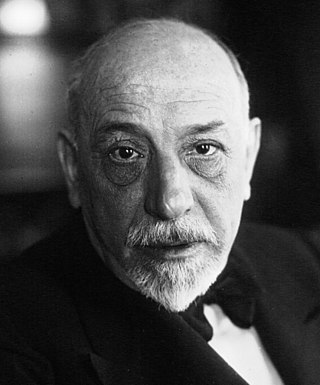
Luigi Pirandello was an Italian dramatist, novelist, poet, and short story writer whose greatest contributions were his plays. He was awarded the 1934 Nobel Prize in Literature "for his bold and ingenious revival of dramatic and scenic art" Pirandello's works include novels, hundreds of short stories, and about 40 plays, some of which are written in Sicilian. Pirandello's tragic farces are often seen as forerunners of the Theatre of the Absurd.

Ella Wheeler Wilcox was an American author and poet. Her works include the collection Poems of Passion and the poem "Solitude", which contains the lines "Laugh, and the world laughs with you; weep, and you weep alone." Her autobiography, The Worlds and I, was published in 1918, a year before her death.
Six Characters in Search of an Author is an Italian play by Luigi Pirandello, written and first performed in 1921. An absurdist metatheatric play about the relationship among authors, their characters, and theatre practitioners, it premiered at the Teatro Valle in Rome to a mixed reception, with shouts from the audience of "Manicomio!" ("Madhouse!") and "Incommensurabile!", a reaction to the play's illogical progression. Reception improved at subsequent performances, especially after Pirandello provided for the play's third edition, published in 1925, a foreword clarifying its structure and ideas.
"The Fly" is a 1922 short story by Katherine Mansfield.
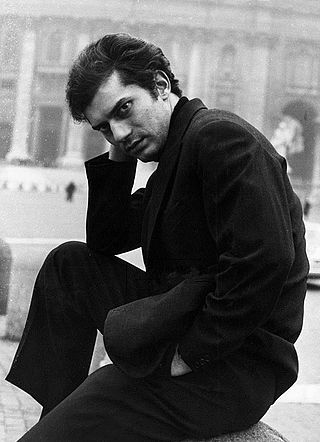
Luigi Tenco was a popular Italian singer-songwriter.

Crocodile tears, or superficial sympathy, is a false, insincere display of emotion such as a hypocrite crying fake tears of grief. The phrase derives from an ancient belief that crocodiles shed tears while consuming their prey, and as such is present in many modern languages, especially in Europe where it was introduced through Latin. While crocodiles do have tear ducts, they weep to lubricate their eyes, typically when they have been out of water for a long time and their eyes begin to dry out. However, evidence suggests this could also be triggered by feeding.

Alida Maria Laura, Freiin Altenburger von Marckenstein-Frauenberg, better known by her stage name Alida Valli, was an Italian actress who appeared in more than 100 films in a 70-year career, spanning from the 1930s to the early 2000s. She was one of the biggest stars of Italian film during the Fascist era, once being called "the most beautiful woman in the world" by Benito Mussolini, and was internationally successful post-World War II. According to Frédéric Mitterrand, Valli was the only actress in Europe to equal Marlene Dietrich or Greta Garbo.
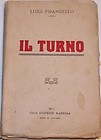
For the film based on the novel, see "Il turno"

Paolo Taviani and Vittorio Taviani, collectively referred to as the Taviani brothers, were Italian film directors and screenwriters who collaborated on numerous film productions.

Massimo Bontempelli was an Italian poet, playwright, novelist and composer. He was influential in developing and promoting the literary styles known as magical realism and lombard line.

Giovanni Orsina is a full professor of Contemporary History at LUISS Guido Carli University in Rome. His main fields of research and teaching are the history of political parties, comparative history of European political systems and the history of journalism. For the academic year 2008/2009 he was director of the new Master in European Studies programme.

Arnoldo Foà was an Italian actor, voice actor, theatre director, singer and writer. He appeared in more than 130 films between 1938 and 2014.
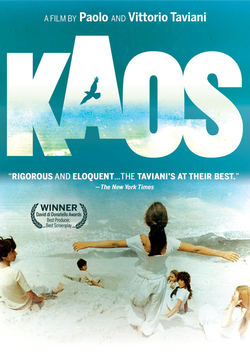
Kaos is a 1984 Italian drama film directed by Paolo and Vittorio Taviani based on short stories by Luigi Pirandello (1867–1936). The film's title is after Pirandello's explanation of the local name Càvusu of the woods near his birthplace in the neighborhood of Girgenti (Agrigento), on the southern coast of Sicily, as deriving from the ancient Greek word kaos.
Right You Are (if you think so) (Italian: Così è (se vi pare), also translated as So It Is (If You Think So), is an Italian drama by Luigi Pirandello. The play is based on Pirandello's short story La signora Frola e il signor Ponza, suo genero.

The Song of Achilles is a 2011 novel by American writer Madeline Miller. Set during the Greek Heroic Age, it is a retelling of the Trojan War as told from the perspective of Patroclus. The novel follows Patroclus' relationship with Achilles, from their initial meeting to their exploits during the Trojan War, with focus on their romantic relationship. In 2012, The Song of Achilles was awarded the Orange Prize for Fiction.
The Stri Parva, or the "Book of the Women," is the eleventh of eighteen books of the Indian epic Mahabharata. It traditionally has 4 parts and 27 chapters, as does the critical edition.

Laura Poantă is a Romanian physician, medical scientist, author, translator, and painter.
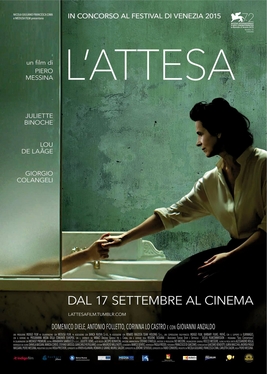
The Wait is a 2015 Italian drama film directed by Piero Messina and starring Juliette Binoche. The film is loosely based on two works by Luigi Pirandello. It was screened in the main competition section of the 72nd Venice International Film Festival.
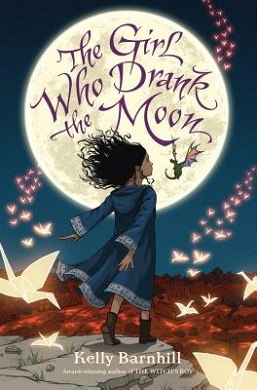
The Girl Who Drank the Moon is a 2016 children's book by Kelly Barnhill. The book focuses on Luna, who after being raised by a witch named Xan, must figure out how to handle the magical powers she was accidentally given before it is too late. The book received the 2017 Newbery Medal.
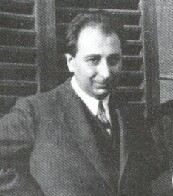
Stefano Pirandello was an Italian playwright and writer, also known under the pen name Stefano Landi.
















